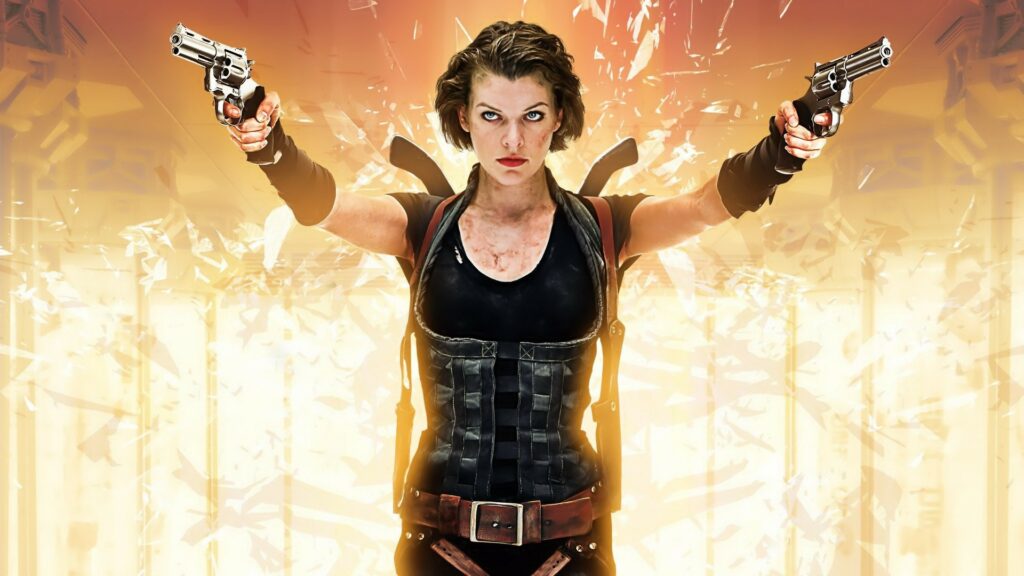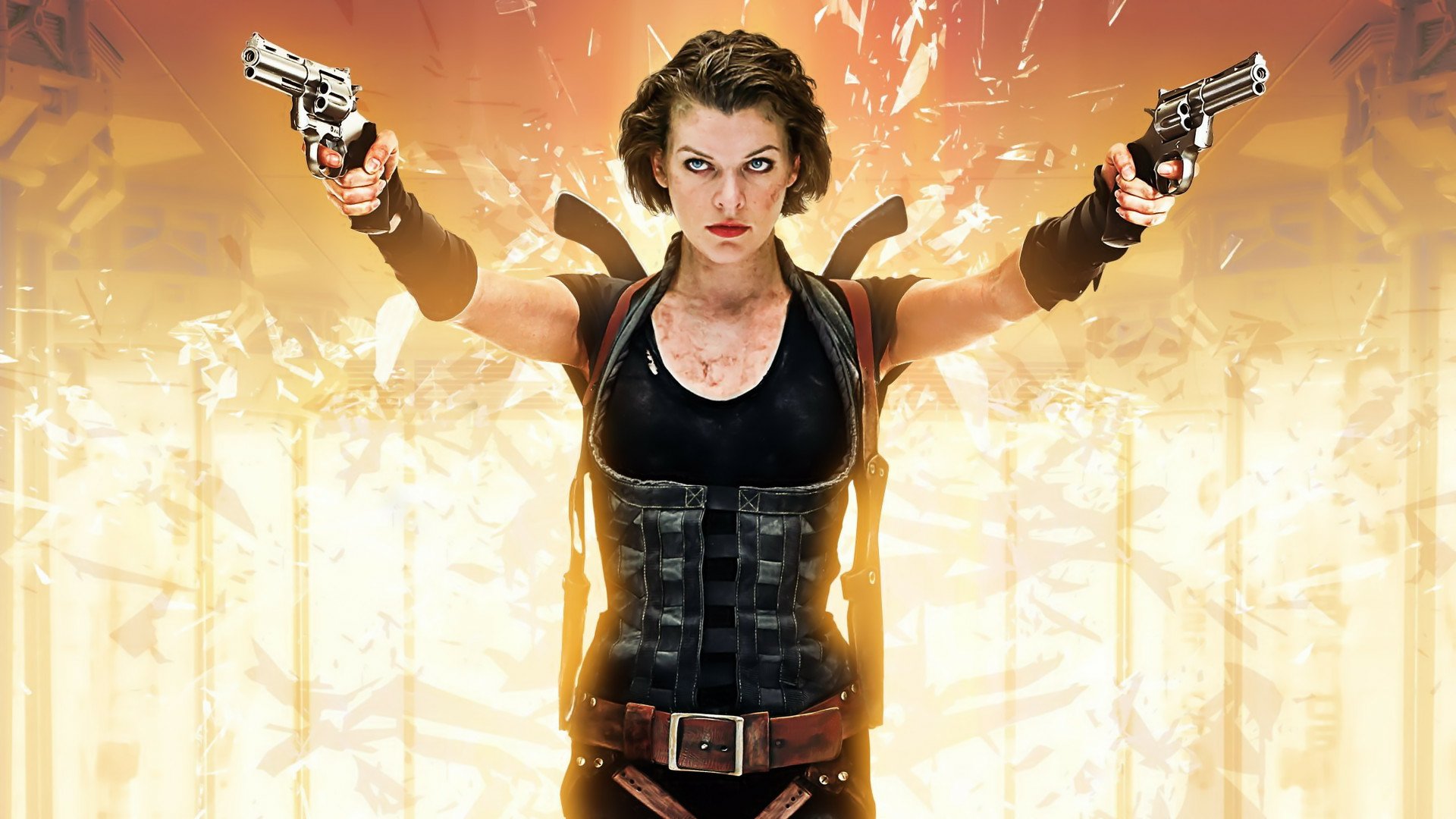
Alice in Resident Evil Games: A Retrospective on the Movie’s Iconic Protagonist
The Resident Evil franchise is a cornerstone of the survival horror genre, known for its intricate lore, terrifying creatures, and compelling characters. While the games primarily focus on characters like Chris Redfield, Jill Valentine, and Leon S. Kennedy, the movie adaptations introduced a new protagonist: Alice. This article delves into the role of Alice in the Resident Evil films, exploring her origins, evolution, powers, and impact on the overall franchise. Although not present in the video games, Alice became synonymous with the Resident Evil cinematic universe, sparking debate and garnering a dedicated fanbase. Her character is a unique and important element when considering the overall Resident Evil brand.
Origins of Alice
Alice, portrayed by Milla Jovovich, first appeared in the 2002 film Resident Evil. Unlike the established characters from the games, Alice was created specifically for the film series. In the initial movie, she is presented as a security operative suffering from amnesia, working for the Umbrella Corporation. As the narrative unfolds, it is revealed that Alice is no ordinary operative; she possesses unique skills and a mysterious connection to the T-virus, the central catalyst for the zombie outbreak. Her character was designed to be an audience surrogate, a point of entry into the chaotic world of Resident Evil.
The decision to create an original character was a strategic one, allowing the filmmakers to explore new storylines and avoid directly adapting specific game narratives. This creative liberty, however, proved to be controversial among fans of the games, who felt that the inclusion of Alice detracted from the established lore and character dynamics. Despite the initial skepticism, Alice quickly became the face of the Resident Evil movie franchise, starring in all six films.
Evolution of Alice’s Character
Throughout the Resident Evil film series, Alice undergoes a significant transformation. From an amnesiac security operative, she evolves into a powerful, almost superhuman figure capable of taking on hordes of zombies and bio-engineered monsters. This evolution is driven by her exposure to the T-virus and subsequent experimentation by the Umbrella Corporation. In later films, Alice gains telekinetic abilities and enhanced strength, making her a formidable opponent against the Umbrella Corporation and its nefarious plans.
Each film in the series adds layers to Alice’s character, revealing more about her past and her connection to the T-virus. She becomes a symbol of resistance against the Umbrella Corporation, leading groups of survivors and fighting to protect humanity from the zombie apocalypse. Her journey is marked by sacrifice, loss, and a relentless determination to end the outbreak. While her powers grow exponentially, the core of her character remains rooted in her desire to protect the innocent and fight for justice. The evolution of Alice makes her a central figure in the Resident Evil cinematic universe.
Alice’s Powers and Abilities
Alice’s powers are a direct result of her exposure to the T-virus and the subsequent genetic manipulation by the Umbrella Corporation. Initially, she exhibits enhanced strength, speed, and agility. As the series progresses, she develops telekinetic abilities, allowing her to move objects with her mind. These powers are not without their drawbacks; Alice experiences side effects such as memory loss and emotional detachment. However, she learns to control and harness her abilities, becoming an increasingly effective fighter.
Her telekinetic powers are showcased in several action sequences, where she uses them to disarm enemies, create shields, and manipulate the environment to her advantage. In addition to her superhuman abilities, Alice is also a skilled martial artist and weapons expert, making her a versatile and deadly combatant. Her combination of physical prowess and telekinetic powers makes her a unique and formidable character in the Resident Evil universe. The development of her powers is a key element in the progression of the Resident Evil movie plotlines.
Impact on the Resident Evil Franchise
Alice’s impact on the Resident Evil franchise is undeniable, though often debated. On one hand, she brought the franchise to a wider audience, introducing the world of Resident Evil to viewers who may not have been familiar with the games. The films, starring Alice, were commercially successful, generating significant revenue and solidifying Resident Evil‘s place in popular culture. On the other hand, her departure from the established game canon alienated some fans who felt that her character overshadowed the original protagonists and storylines. Her presence as the main character in the Resident Evil movies is a clear diversion from the games.
Despite the controversies, Alice became an iconic figure in the Resident Evil universe. Her character represents a unique interpretation of the franchise’s themes of survival, resilience, and the fight against corporate corruption. Her story, while distinct from the games, offers a compelling narrative arc that resonates with audiences. The Resident Evil movies, with Alice at the helm, have contributed to the franchise’s enduring popularity and its continued presence in the entertainment landscape.
Criticism and Reception
Alice’s character has been subject to both praise and criticism. Some viewers appreciate her strong, independent nature and her unwavering commitment to fighting for humanity. Others criticize her for being overpowered and for deviating too far from the source material. Critics have also pointed out inconsistencies in her character development and plot armor, where she seems to survive seemingly impossible situations without consequence. However, Milla Jovovich’s performance as Alice has generally been well-received, with many praising her portrayal of the character’s strength and vulnerability. The character Alice in Resident Evil is often criticized for not being in the games.
The reception of Alice also varies among different segments of the Resident Evil fanbase. Game purists often view her as an unwelcome addition, preferring the established characters and storylines from the games. Movie fans, on the other hand, tend to embrace her as a compelling protagonist who drives the action and provides an emotional anchor for the series. Ultimately, Alice’s character remains a divisive figure, sparking debate and discussion among fans and critics alike.
Alice’s Legacy
Despite the controversies and criticisms, Alice leaves a lasting legacy on the Resident Evil franchise. She represents a bold attempt to expand the universe beyond the confines of the games, offering a new perspective on the themes and characters that define the series. Her character has inspired fan fiction, cosplay, and countless discussions about the nature of adaptation and the balance between staying true to the source material and exploring new creative avenues. Alice has become a symbol of Resident Evil’s adaptation to film.
While the Resident Evil movie series has concluded, Alice’s character continues to resonate with audiences. She remains a popular subject of discussion among fans, and her influence can be seen in other adaptations and reinterpretations of the franchise. Whether she is viewed as a hero, a villain, or a complex anti-hero, Alice has undoubtedly left her mark on the Resident Evil universe, solidifying her place as one of the most iconic characters in the franchise’s history. The character of Alice from Resident Evil is a film icon.
The Future of Resident Evil Adaptations
With the success of both the games and the film series, the Resident Evil franchise continues to evolve and adapt to new media. Recent adaptations, such as the Resident Evil: Welcome to Raccoon City film and the Resident Evil: Infinite Darkness animated series, have attempted to stay closer to the source material, focusing on established characters and storylines from the games. However, the legacy of Alice remains a significant factor in the ongoing evolution of the franchise. [See also: Resident Evil Remake Review]
As Resident Evil continues to expand into new mediums, it will be interesting to see how future adaptations navigate the balance between honoring the original games and exploring new creative avenues. Whether Alice returns in a future adaptation or remains a unique element of the film series, her impact on the franchise will undoubtedly be felt for years to come. The Resident Evil games and movies have a long history of adaptation.
Conclusion
Alice, the iconic protagonist of the Resident Evil movie series, represents a unique and often controversial addition to the franchise. While her character departs from the established lore of the games, she has nonetheless become a beloved figure among many fans, bringing the world of Resident Evil to a wider audience. Her evolution from an amnesiac security operative to a powerful, superhuman fighter has captivated viewers and sparked countless discussions about the nature of adaptation and the balance between staying true to the source material and exploring new creative avenues. The legacy of Alice in Resident Evil will continue to be debated.
Whether she is viewed as a hero, a villain, or a complex anti-hero, Alice has undoubtedly left her mark on the Resident Evil universe, solidifying her place as one of the most iconic characters in the franchise’s history. As Resident Evil continues to evolve and adapt to new media, the impact of Alice will undoubtedly be felt for years to come. The story of Alice in Resident Evil is an interesting case study of adaptation and character development.

